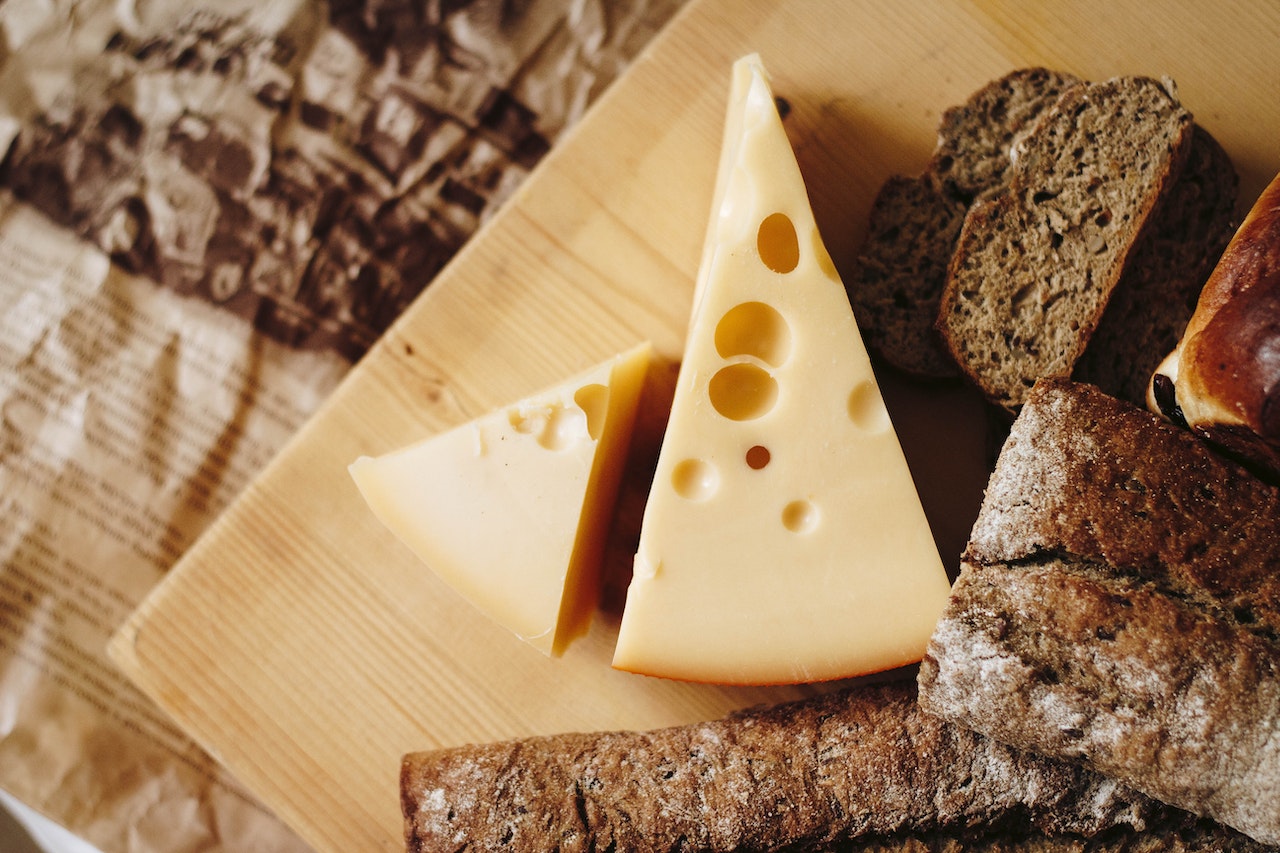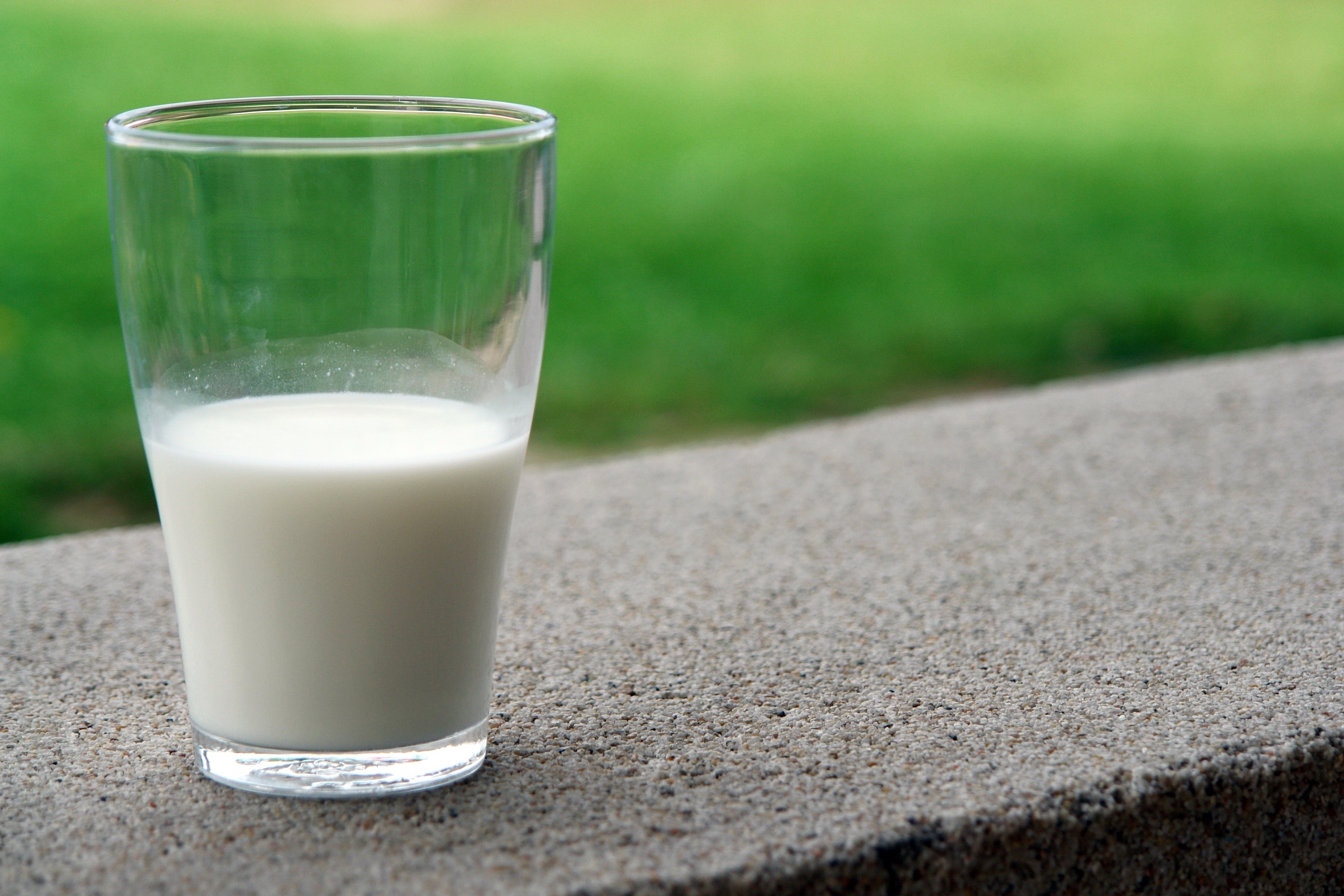The Benefits Of A Gluten-Free, Dairy-Free Diet - An Ultimate Guide
In this article, we will explore the benefits of a gluten-free, dairy-free diet, as well as provide tips for adopting this eating pattern. A gluten-free, dairy-free diet is a popular eating pattern that has gained popularity in recent years.
Author:Suleman ShahReviewer:Han JuMar 07, 202311 Shares737 Views

In this article, we will explore thebenefits of a gluten-free, dairy-free diet, as well as provide tips for adopting this eating pattern. A gluten-free, dairy-free diet is a popular eating pattern that has gained popularity in recent years.
It involves eliminating all sources of gluten and dairy from the diet, including wheat, barley, rye, milk, cheese, and other dairy products. This eating pattern is believed to have a range of healthbenefits, particularly for those with certain health conditions or sensitivities.
Benefits Of Gluten-free Diet
Here are some benefits of gluten-free diet.
Improved Digestive Health
One of the most notable benefits of a gluten-free, dairy-free diet is improved digestive health. Gluten is a protein found in wheat, barley, and rye that can be difficult to digest for some people.
In individuals with celiac disease or non-celiac gluten sensitivity, consuming gluten can lead to digestive issues such as bloating, gas, diarrhea, and abdominal pain. By eliminating gluten from the diet, these symptoms can be significantly reduced or eliminated altogether.
Dairy can also be difficult to digest for some individuals. Lactose intolerance is a common condition in which the body is unable to fully digest lactose, a sugar found in milk and dairy products.
This can lead to digestive issues such as bloating, gas, and diarrhea. Eliminating dairy from the diet can help alleviate these symptoms and improve overall digestive health.
Reduced Inflammation
Another benefit of a gluten-free, dairy-free diet is reduced inflammation. Inflammation is a natural response of the immune systemto injury or infection, but chronic inflammation can lead to a range of health issues such as heart disease, arthritis, and certain types of cancer.
Gluten and dairy are both known to trigger inflammation in some individuals, particularly those with autoimmune disorders.
By eliminating gluten and dairy from the diet, inflammation levels can be reduced, potentially improving overall health and reducing the risk of chronic disease.
Improved Skin Health
Gluten and dairy are also known to contribute to certain skin conditions such as acne, eczema, and psoriasis.
By eliminating these foods from the diet, some individuals may see an improvement in their skin health. This is particularly true for individuals with gluten or dairy sensitivity or intolerance.
Weight Loss
Adopting a gluten-free, dairy-free diet may also lead to weight loss for some individuals. Many gluten-free and dairy-free foods are naturally low in calories, and eliminating processed foods that contain gluten and dairy can help reduce overall caloric intake.
Additionally, some individuals may find that they feel fuller for longer periods of time when following a gluten-free, dairy-free diet, which can lead to a reduction in overall food intake.
Improved Nutrient Absorption
Eliminating gluten and dairy from the diet can also improve nutrient absorption. Both gluten and dairy can interfere with the absorption of certain nutrients, particularly in individuals with celiac disease or lactose intolerance.
By eliminating these foods from the diet, the body may be better able to absorb important vitamins and minerals, leading to improved overall health.
The Benefits Of A Gluten-Free, Dairy-Free Diet - Tips For Adopting
If you are interested in adopting a gluten-free, dairy-free diet, there are a few tips that can help make the transition easier.
- Start by eliminating gluten and dairy-containing foods gradually, rather than all at once.
- Experiment with new gluten-free and dairy-free foods to find replacements for your favorite foods.
- Read labels carefully to ensure that foods do not contain gluten or dairy.
- Consider working with a registered dietitian to ensure that your diet remains balanced and nutritious.
Gluten And Dairy-free Food List
Following a gluten-free, dairy-free diet requires eliminating all sources of gluten and dairy from your diet. Gluten is a protein found in wheat, barley, rye, and sometimes oats, while dairy refers to any food or drink containing milk, cheese, butter, or cream.
Adopting a gluten-free, dairy-free diet may seem challenging, but there are plenty of nutritious and delicious options available. Here is a list of gluten-free, dairy-free foods to consider including in your diet:
Fruits And Vegetables
All fresh fruits and vegetables are naturally gluten-free and dairy-free, making them an excellent choice for a healthy and nutritious diet.
Meats, Poultry, And Fish
Fresh, unprocessed meat, poultry, and fish are naturally gluten-free and dairy-free. It's essential to avoid processed meats such as sausages, which may contain gluten and dairy.
Grains And Starches
Gluten-free grains and starches include rice, quinoa, corn, potatoes, sweet potatoes, and gluten-free oats. These can be used in place of wheat, barley, and rye in your diet.
Legumes
Legumes, such as lentils, beans, and chickpeas, are an excellent source of plant-based protein and fiber. They are naturally gluten-free and dairy-free, making them an excellent addition to a gluten-free, dairy-free diet.
Nuts And Seeds
Nuts and seeds are excellent sources of healthy fats, protein, and fiber. They are naturally gluten-free and dairy-free and can be a great snack or addition to meals.
Gluten-free Flours
There is plenty of gluten-free flour available, including almond flour, coconut flour, and cassava flour. These can be used in place of wheat flour in baking and cooking.
Gluten-free Pasta And Bread
There are many gluten-free kinds of pasta and bread available, made with alternative flour like rice, corn, and quinoa. Be sure to check labels carefully to ensure they are also dairy-free.
Non-dairy Milk
There are plenty of non-dairy milk options available, including almond milk, coconut milk, and oat milk. These can be used in place of dairy milk in cooking and baking.
Non-dairy Yogurts And Cheeses
There are many non-dairy yogurts and cheeses available, made from ingredients like almond milk, coconut milk, and soy. Be sure to check labels carefully to ensure they are also gluten-free.

The Benefits of Going Gluten & Dairy Free | Emily Schromm
Gluten-free Snacks
There are many gluten-free, dairy-free snack options available, including gluten-free crackers, chips, and popcorn. Be sure to check labels carefully to ensure they are also dairy-free.
When adopting a gluten-free, dairy-free diet, it's essential to read labels carefully and be aware of potential cross-contamination.
Many products may be labeled gluten-free or dairy-free, but they may still contain small amounts of gluten or dairy due to cross-contamination during manufacturing.
It's also important to note that many processed foods, including packaged snacks, condiments, and sauces, may contain hidden sources of gluten or dairy. Be sure to read labels carefully and look for products that are specifically labeled gluten-free and dairy-free.
In summary, a gluten-free, dairy-free diet requires eliminating all sources of gluten and dairy from your diet.
However, there are plenty of nutritious and delicious options available, including fresh fruits and vegetables, meats, fish, grains and starches, legumes, nuts and seeds, gluten-free flours, non-dairy milk, non-dairy yogurts and cheeses, and gluten-free snacks.
When adopting this eating pattern, it's important to read labels carefully and be aware of potential cross-contamination.
People Also Ask
What Are The Health Benefits Of A Gluten-free, Dairy-free Diet?
A gluten-free, dairy-free diet may offer benefits such as improved digestive health, reduced inflammation, better skin health, improved nutrient absorption, and weight loss for some individuals.
What Foods Are Gluten-free And Dairy-free?
Some examples of gluten-free and dairy-free foods include fresh fruits and vegetables, unprocessed meats, fish and poultry, legumes, gluten-free grains, and starches, nuts, and seeds.
Can A Gluten-free, Dairy-free Diet Help With Weight Loss?
Eliminating gluten and dairy from your diet can lead to weight loss in some individuals, but it's important to ensure that you are still getting all the necessary nutrients from a balanced and varied diet.
Conclusion
In conclusion, The Benefits of a Gluten-Free, Dairy-Free Diet includes improved digestive health, reduced inflammation, improved skin health, weight loss, and improved nutrient absorption.
If you are interested in adopting this eating pattern, it is important to do so gradually and with careful consideration to ensure that your diet remains balanced and nutritious. Working with a registered dietitian can also be helpful to ensure that you are getting all the necessary nutrients.
In summary, a gluten-free, dairy-free diet may offer a range of benefits for certain individuals. By eliminating these foods from the diet, individuals may see improvements in digestive health, inflammation levels, skin health, weight, and nutrient absorption.
If you are interested in adopting this eating pattern, be sure to do so gradually and with the guidance of a registered dietitian to ensure that your diet remains balanced and nutritious.

Suleman Shah
Author
Suleman Shah is a researcher and freelance writer. As a researcher, he has worked with MNS University of Agriculture, Multan (Pakistan) and Texas A & M University (USA). He regularly writes science articles and blogs for science news website immersse.com and open access publishers OA Publishing London and Scientific Times. He loves to keep himself updated on scientific developments and convert these developments into everyday language to update the readers about the developments in the scientific era. His primary research focus is Plant sciences, and he contributed to this field by publishing his research in scientific journals and presenting his work at many Conferences.
Shah graduated from the University of Agriculture Faisalabad (Pakistan) and started his professional carrier with Jaffer Agro Services and later with the Agriculture Department of the Government of Pakistan. His research interest compelled and attracted him to proceed with his carrier in Plant sciences research. So, he started his Ph.D. in Soil Science at MNS University of Agriculture Multan (Pakistan). Later, he started working as a visiting scholar with Texas A&M University (USA).
Shah’s experience with big Open Excess publishers like Springers, Frontiers, MDPI, etc., testified to his belief in Open Access as a barrier-removing mechanism between researchers and the readers of their research. Shah believes that Open Access is revolutionizing the publication process and benefitting research in all fields.

Han Ju
Reviewer
Hello! I'm Han Ju, the heart behind World Wide Journals. My life is a unique tapestry woven from the threads of news, spirituality, and science, enriched by melodies from my guitar. Raised amidst tales of the ancient and the arcane, I developed a keen eye for the stories that truly matter. Through my work, I seek to bridge the seen with the unseen, marrying the rigor of science with the depth of spirituality.
Each article at World Wide Journals is a piece of this ongoing quest, blending analysis with personal reflection. Whether exploring quantum frontiers or strumming chords under the stars, my aim is to inspire and provoke thought, inviting you into a world where every discovery is a note in the grand symphony of existence.
Welcome aboard this journey of insight and exploration, where curiosity leads and music guides.
Latest Articles
Popular Articles
